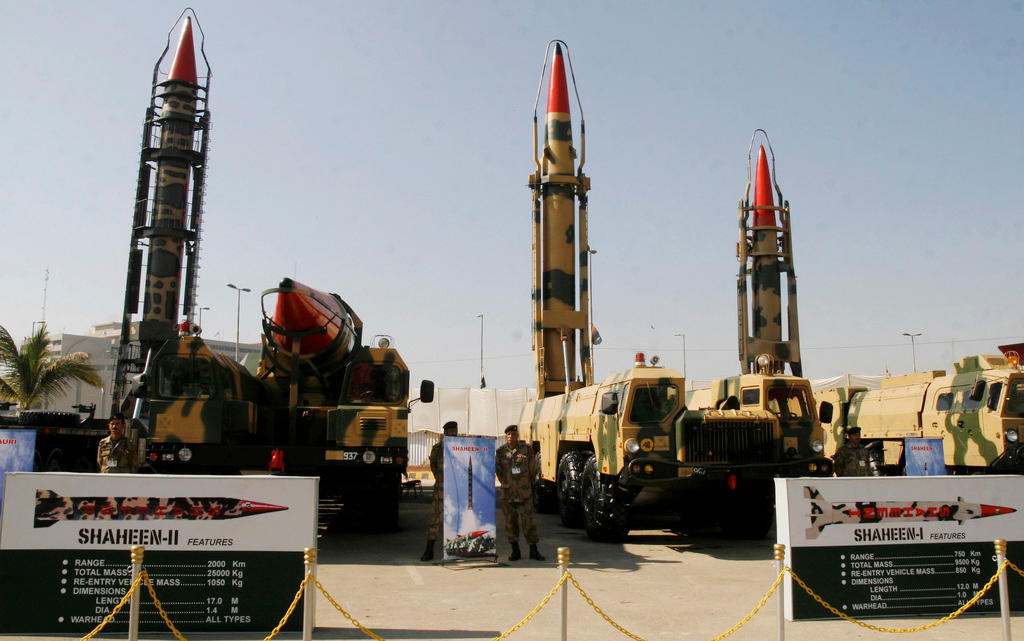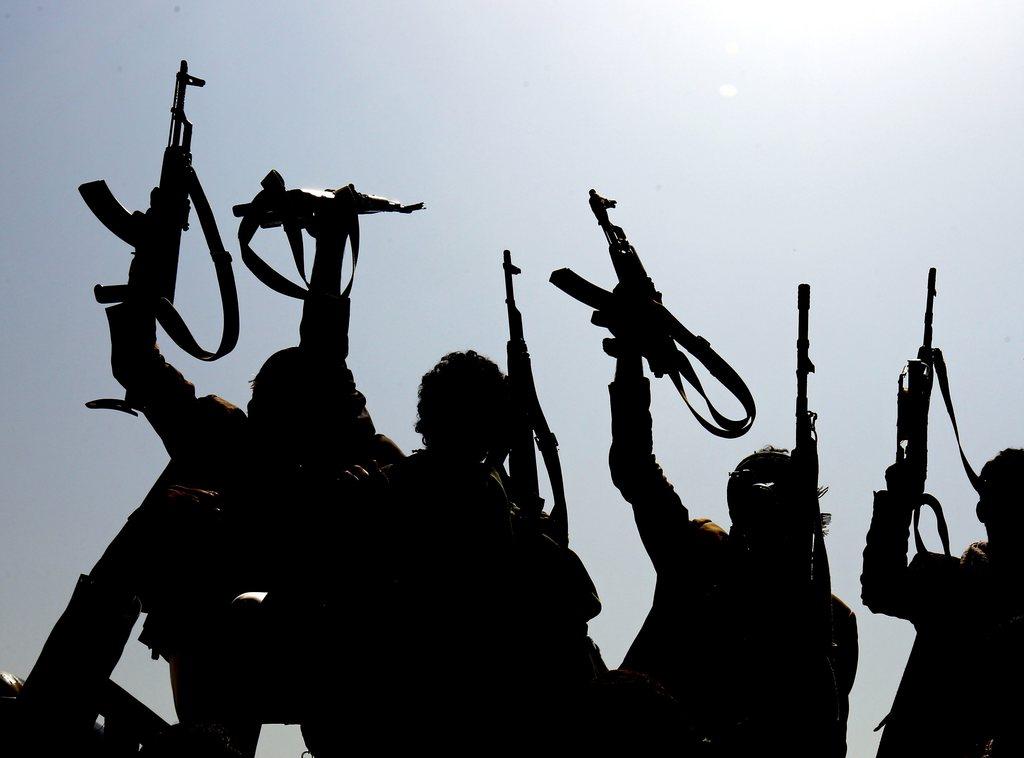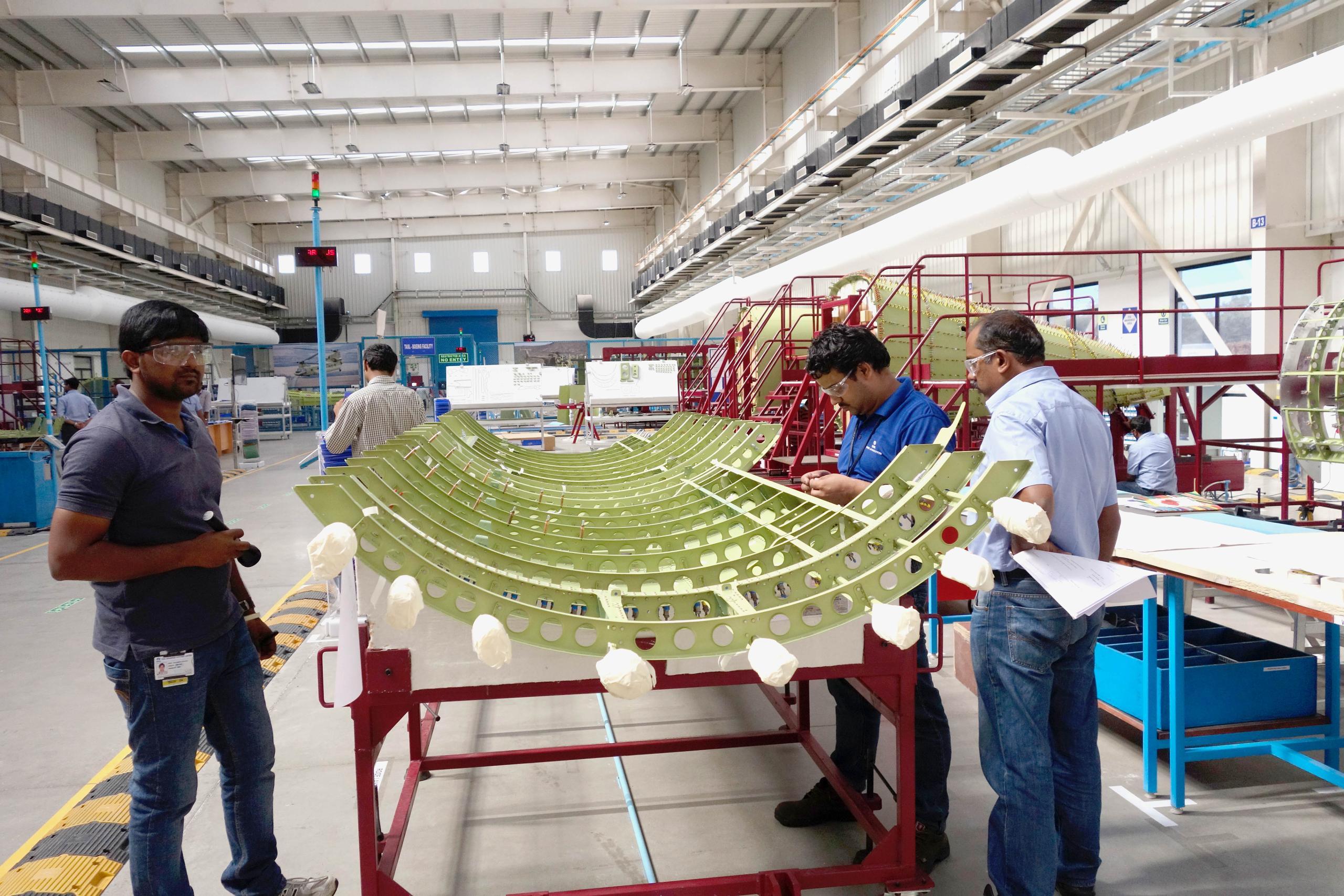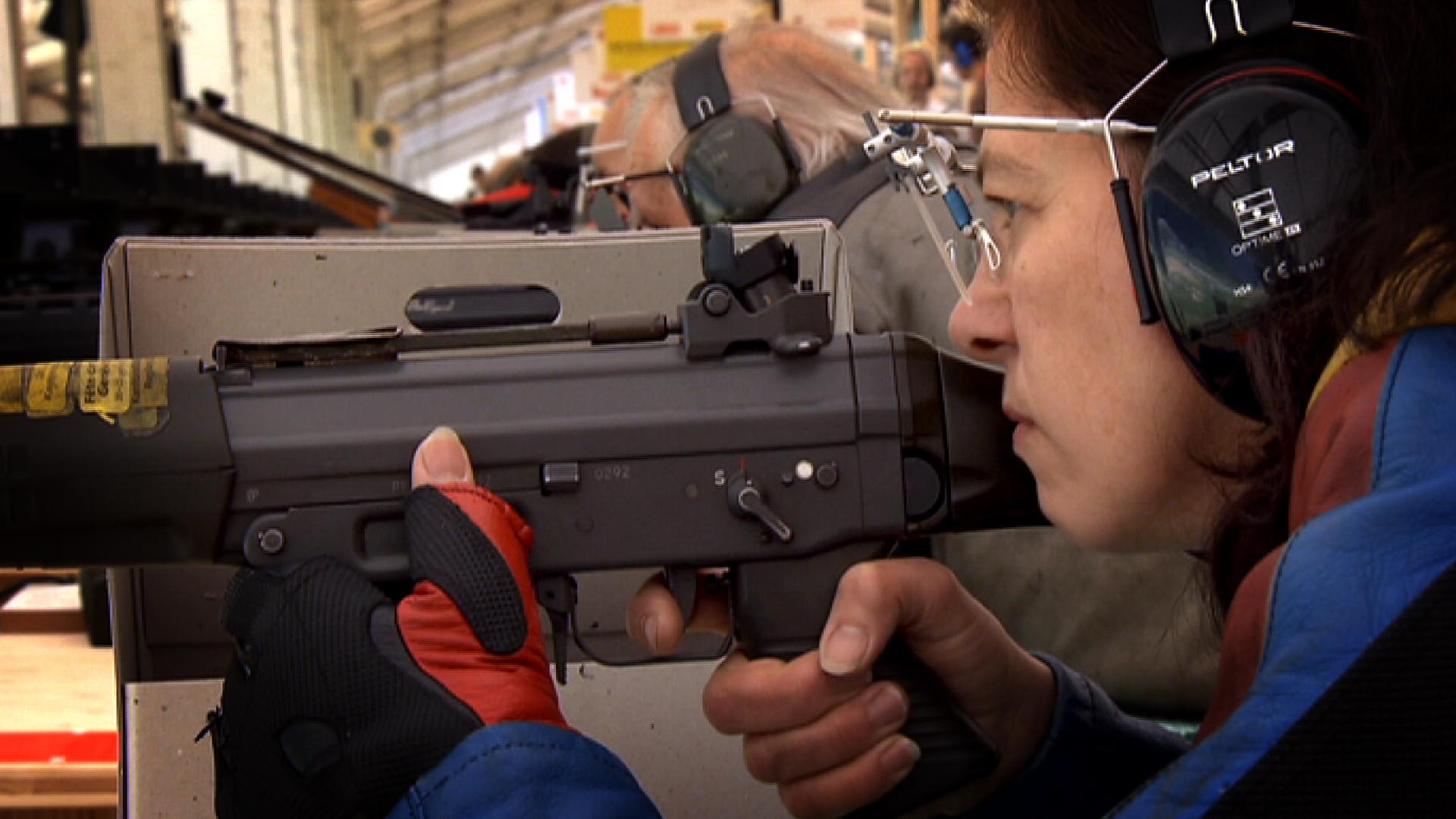Swiss block sale over concern about Pakistani nuclear programme

Swiss government officials say they denied an export permit to a domestic manufacturer because of indications that its products would have supported the production of Pakistani nuclear weapons.
The decision by Switzerland’s State Secretariat for Economic Affairs (SECOExternal link) prevented the undisclosed Swiss company from being able to sell its valves abroad for use in ventilation systems.
The incident, first reported in the Swiss newspaper NZZ am SonntagExternal link, shows the risk of “dual-use goods” that can be sold commercially but put to military use. SECO generally does not allow items to be sold that can be used for both purposes. A spokesman, Fabian Maienfisch, confirmed to swissinfo.ch that SECO denied the export application for the valves.
Officials with SECO have denied 330 export applications worth CHF159 million ($165 million) in blocked sales since the law regulating dual-use goods took effect two decades ago. They included 161 suspected breaches of export control regulations which were, in many cases, alleged formal offenses and not intentional violations.
SECO has previously denied exports of machine tools and similar products to Pakistan, which the agency believed would go to the country’s nuclear program, according to Maienfisch.
Not the first time
In the most recent case involving products bound for Pakistan, Maienfisch wrote that the company that sought an export permit is not suspected of breaching regulations.
SECO based its decision, he said, on “information that these valves will not remain with the industrial plant declared on the final declaration of the end-of-life declaration, but will be passed on to a nuclear-relevant entity involved in the Pakistani nuclear weapons program.”
The SECO file to deny the export application says the proposed sale of valves was worth CHF76,626.35. It cites two reasons under the Swiss law on dual-use goodsExternal link. One is that the item is meant to be used to make nuclear weapons; the other is that the recipient of the item intends to pass it on. In this case, the proposed sale of the valves apparently involved a decoy company or third-party country.
The valves can be used for civilian or military purposes – and it is not the first time that SECO has denied an export permit to sell them abroad. Maienfisch said that SECO could not publicly disclose the basis for its decision that the sale involved the Pakistani procurement network for its nuclear program.
The use of decoy companies and third-party countries to hide the real intent for purchasing something is a growing phenomenon.
“Procurement is increasingly carried out by camouflage companies and by third countries to obscure the actual recipient and the critical use,” Maienfisch wrote. “Machine tools, measuring instruments, navigation equipment, valves and compressors are mainly the focus of procurement.”
To counter this trend, SECO works with export authorities from other countries and with officials from other Swiss agencies such as the Federal Customs Administration to make border checks, and the Federal Intelligence Service to obtain sensitive information.
Pakistani nuclear threat
Only last week, 122 countries approved the first-ever treaty to ban nuclear weapons. The vote at a United Nations conference in New York was boycotted by all the nuclear-armed nations. Among the countries that attended, the Netherlands opposed the treaty while Singapore abstained.
The treaty did not get the support of any of the nine countries that boycotted the meeting and are known or believed to possess nuclear weapons: Britain, China, France, India, Israel, North Korea, Pakistan, Russia and the United States.
Among those countries, Pakistan has been a concern because it is a hotbed of global jihadism. Pakistani officials say their nuclear arms are safe, but the Pakistani military and intelligence services use terrorist networks to advance their own regional goals.
It also has a history of giving nuclear technology to countries such as Iran and North Korea.
Tinner case
A recent Swiss case shed rare light on the CIA’s successful operation to destroy the nuclear smuggling network of the architect of Pakistan’s nuclear weapons program, Abdul Qadeer Khan, who built up an international network selling equipment to countries with nuclear weapons ambitions during the 1990s.
In 2012, the Swiss Federal Criminal Court found three Swiss men guilty of helping supply material and know-how to Libya’s atomic weapons programme almost a decade earlier. It also approved a plea bargain that cited cooperation with the American spy agency CIA as a mitigating circumstance.
Two brothers, Urs and Marco Tinner, were sentenced to prison terms while their father, Friedrich, got a suspended sentence after all three pled guilty and were ordered to pay fines and legal costs. The brothers spent years in investigative custody partly due to the case’s complexity and to the Swiss government’s decision in 2007 to destroy evidence in the case, reportedly under US pressure.
Swiss prosecutors said the Tinners were involved in Qadeer Khan’s smuggling ring and supplied key equipment and blueprints to produce gas centrifuges needed to enrich uranium to weapons-grade levels, and that there was evidence the Tinners cooperated with US officials and manipulated the centrifuge parts bound for Libya to ensure they did not function properly.
Grey zones
Last year marked the first instance when SECO authorised the export of goods that could have both civilian and military applications. The sale involved CHF100 million worth of encryption devices for Iraq, part of CHF1.2 billion in war materiel or dual-use exports shipped to various countries in 2016, according to Swiss public television SRF.
SECO confirmed to SRF that the Iraqi civilian government ministry ordered the shipment of encrypted telephones to enable secure communication systems. Under Swiss export regulations, dual-use goods must pass less stringent restrictions than for war materiel.
The exception is surveillance equipment that can be rejected for export if there is evidence of it being used for repressive purposes. But SECO did not believe the encrypted phones fell into the surveillance category or could pose a threat if they fall into the wrong hands, since they can be remotely disabled.
At least CHF7 billion in war materiel or dual-use goods have been exported from Switzerland in the last five years to 146 different countries, including training planes and drones worth CHF3 billion.
The India connection
The world’s biggest arms importer, India, is a big market for Swiss defence firms that make high-end products. India, which has a long history of tensions with Pakistan, uses aircraft parts from some of the world’s biggest defence firms, including Switzerland’s Pilatus.
An Indian company assembles the wings and fuselage of the Pilatus PC-12 single engine aircraft that is used as an air ambulance, business aircraft and by the military for non-combat use like surveillance.
SECO has also approved licenses to ship exports of non-armed military training aircraft for the Indian Air Force including flight simulators and spare parts. The training aircraft is the Pilatus PC-7 MKII.

In compliance with the JTI standards
More: SWI swissinfo.ch certified by the Journalism Trust Initiative







You can find an overview of ongoing debates with our journalists here. Please join us!
If you want to start a conversation about a topic raised in this article or want to report factual errors, email us at english@swissinfo.ch.